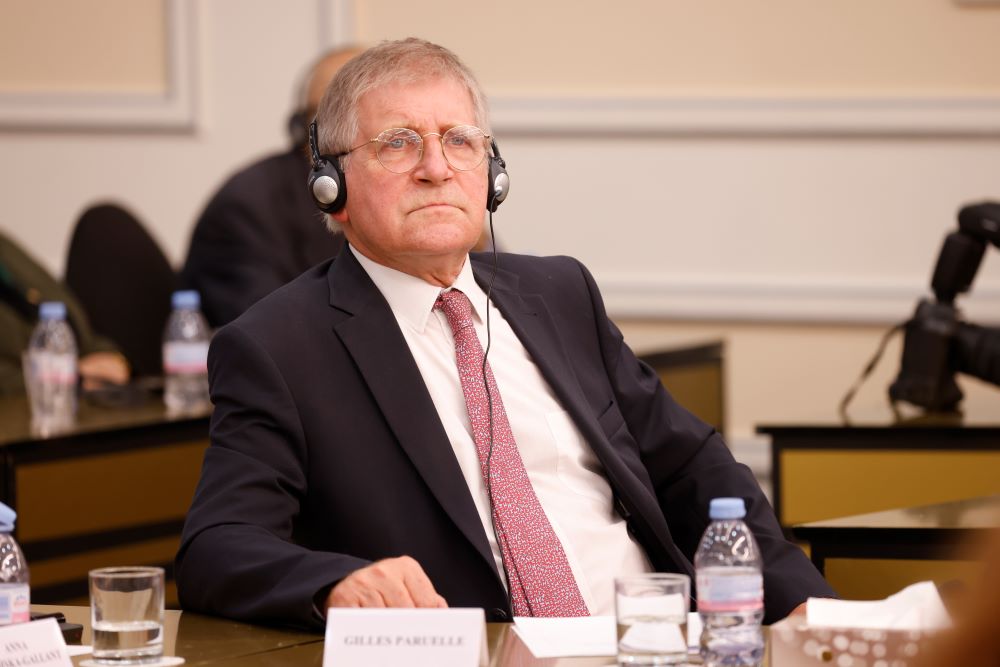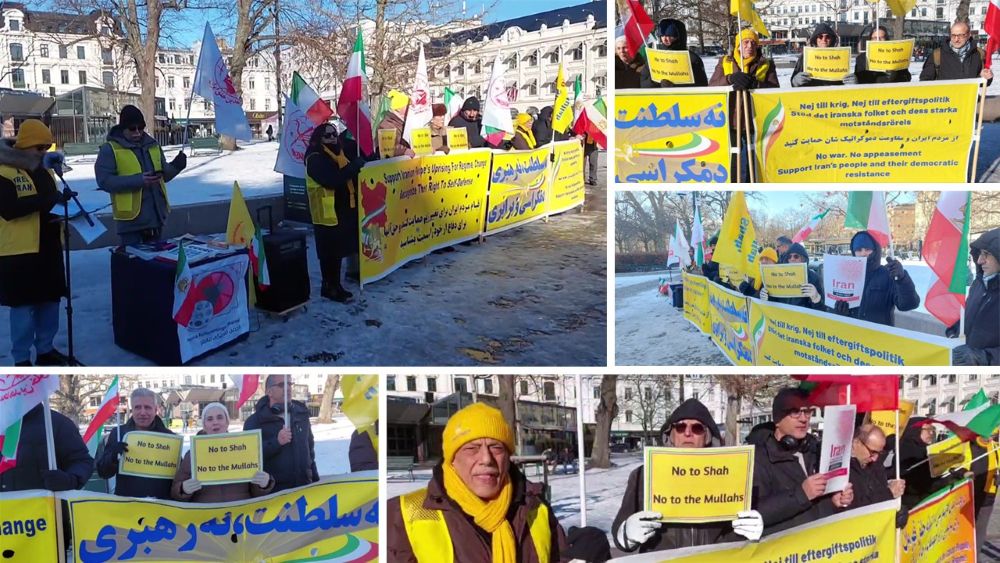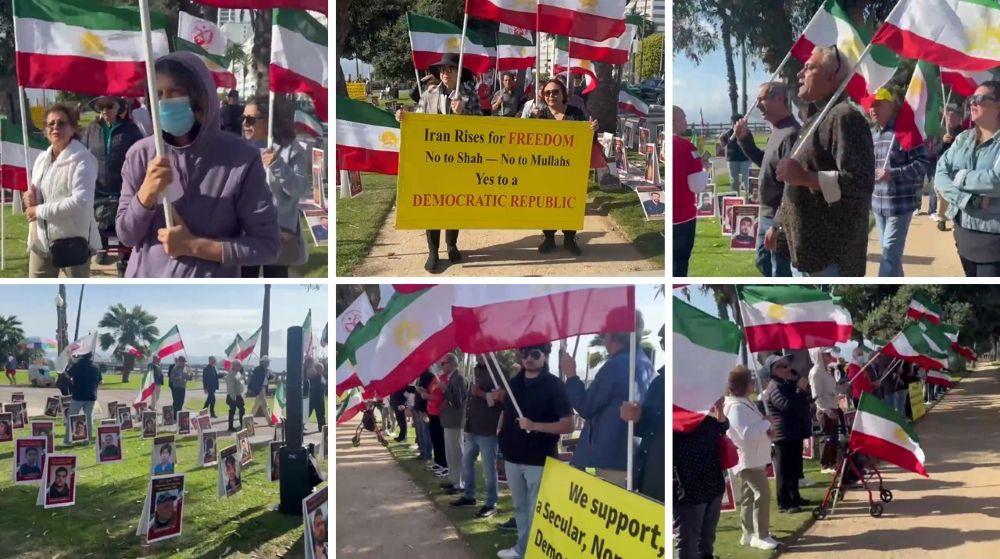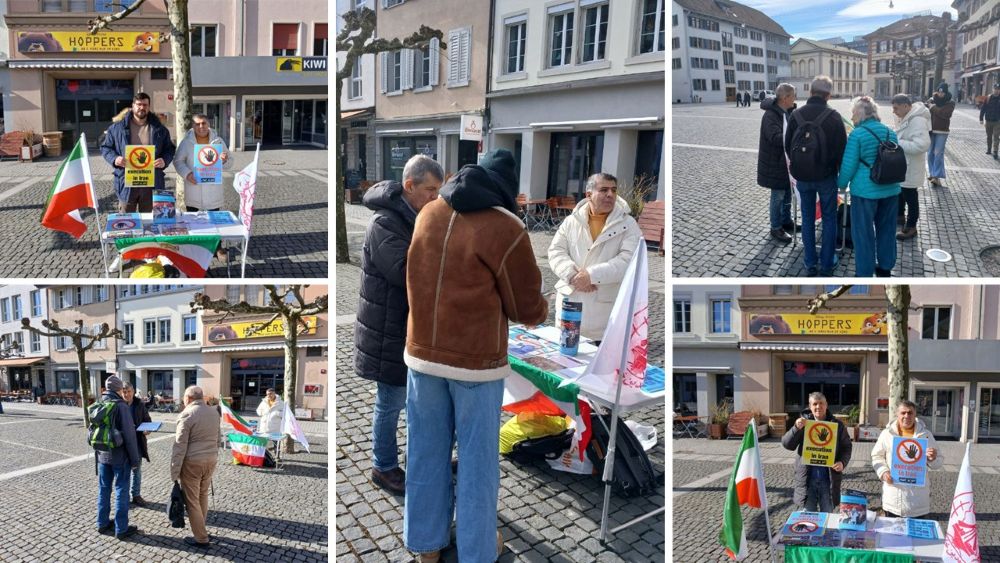
At a recent Iranian Resistance conference, Gilles Paruelle, a seasoned lawyer with experience at the International Criminal Tribunal for Rwanda and former president of the Val d’Oise Province Bar Association, underscored the pressing need for accountability and justice for crimes committed by the Iranian regime.
Drawing on his experience in Rwanda after the 1994 genocide, Paruelle highlighted the critical role of international justice in ensuring that perpetrators of atrocities are held accountable. He pointed out that although the International Criminal Tribunal for Rwanda was instrumental in prosecuting those responsible for the genocide, political and legal obstacles often impeded the pursuit of justice. Paruelle compared the Rwandan experience to the current situation in Iran, emphasizing the importance of universal jurisdiction to prosecute those guilty of crimes against humanity, regardless of where they are.
Turning his focus to Iran, Paruelle expressed strong support for the Iranian opposition and their fight against impunity. He advocated for the establishment of an international tribunal to address the crimes of the Iranian regime, acknowledging the challenges posed by geopolitical factors and the veto powers within the UN Security Council.
Paruelle concluded by stressing the necessity of political change in Iran to facilitate the prosecution of those responsible for human rights violations, calling for an end to the entrenched culture of impunity.
A translated version of Gilles Paruelle’s speech follows:
Yes, thank you, Madam President, for giving me the floor, and for the opportunity to send a greeting to my friends in Ashraf, whom I particularly salute, especially those in section 6, which I visited several times when I was in Ashraf.
These are people who are very close to my heart, and when we heard from the survivors of 1988 earlier, I couldn’t help but think of all those young men I listened to about twenty years ago, who confided in me with the same stories. I must tell you that it left a significant mark on me, perhaps even influencing the course of my professional work.
39. Gilles Paruelle: I’m an irresistible friend of your resistance from 40 years ago. We talked about those who sacrificed their lives, but we must also talk about those who continue to sacrifice everything for a free Iran.#Westand4FreeIranpic.twitter.com/VUoQYMYzWp
— NCRI-FAC (@iran_policy) August 19, 2022
Thank you, Madam President, for giving me the floor. For a moment, I wondered, until Professor Boul’s intervention, why I was speaking among such distinguished personalities. I haven’t written any books, nor have I been a special rapporteur, and I acknowledge the work of Professor Rayman, whom I’ve read, although I didn’t have the opportunity to listen to him earlier for personal reasons as I had to step out.
I haven’t done any of those things, and I thought perhaps I was here because I’m the only one who speaks French. But then Mr. Clément Voul spoke, and I realized that wasn’t the reason either.
So, I wondered what I could say, and perhaps it is my humble experience as a practitioner, a lawyer for thirty years, working with the Rwandan people in the aftermath of the Tutsi genocide.
The Tutsi genocide is something that has left a deep impact. When we talk about international justice, about universal jurisdiction, we cannot ignore the Tutsi genocide in Rwanda, which, it must be remembered, resulted in one million deaths in a hundred days, from April 6, 1994, to July 4, 1994, with about ten thousand deaths per day using traditional weapons.
With that said, I won’t go into the reasons why I found myself in Rwanda at the end of 1994. Nevertheless, I was there, and I witnessed the devastation of what was a genocide. I heard the testimonies of the few survivors, and I asked myself what I, a simple provincial bar president in France, could do.
I thought the first thing to do was to rebuild the justice system, which had been completely destroyed. There were no magistrates left because they had been killed, no courts because they had been demolished, no lawyers because there simply weren’t any until then—only judicial representatives.
What I could do was something at the level of justice. I created a bar association, believing it was important. The defense was important, and victims’ rights were important.
I listened with pleasure to several speakers discuss victims’ rights, and I will speak about it later within the framework of universal jurisdiction as it is applied in France, which I believe is truly essential.
Of course, there was the International Criminal Tribunal, and I thought the previous speaker would address it. So, I wondered what I would speak about. The International Criminal Tribunal, which lasted twenty years, prosecuted ninety-two individuals if memory serves me correctly—those who were most responsible, but not all of them. Sixty-two or sixty-four people were convicted, and the Tribunal spent two billion dollars.
Simultaneously in Rwanda, the gacaca courts were established. These are popular, village-based courts, which clearly do not meet international justice standards. But in any case, a million people were tried.
The culture of impunity had to end. It was imperative that most Rwandans who participated in the Tutsi genocide be brought before the courts.
I was part of the legislative reform commissions. As a lawyer, I opposed the establishment of gacaca courts, as they had no lawyers, no prosecutors either—but no lawyers, and I couldn’t endorse a jurisdiction where defense was not represented.
However, it must be acknowledged that the outcome of the gacaca courts was relatively positive. In any case, there was no amnesty, unlike previous massacres in 1959, 1963, 1973, and 1992, even before the 1994 genocide.
But my problem, my concern, was those who didn’t stand before the International Criminal Tribunal or the gacaca courts—those who had enough money to flee, escaping to places like France, where many were sheltered. This situation was of particular concern for France, given its political ties with Rwanda.
The Rwandan government tasked me with representing extradition proceedings. Complaints were filed by victims against suspected genocidaires who had taken refuge in France. I sought to extradite responsible individuals, including ministers and mayors, who had managed to reach France.
However, I faced categorical refusals from the highest French court, the Cour de Cassation. I would secure favorable rulings from provincial courts of appeal for the extradition of those involved in the 1994 genocide, only for the Cour de Cassation to overturn them, citing the principle of legality of crimes and punishments, and the non-retroactivity of laws. Unfortunately, the Rwandan penal code did not define the crime of genocide at the time, even though it existed. As a result, the Cour de Cassation consistently refused extradition based on this principle.
The only remaining option was universal jurisdiction. Since then, we have pursued suspects under this framework. While we have not achieved the level of Belgium, we have done better than Germany or England, with seven trials to date. When diplomatic relations between France and Rwanda improved under Presidents Sarkozy and Macron, we finally saw cases brought before the assize courts.
The first trials coincided with the 20th anniversary of the Tutsi genocide in Rwanda, which pleased Kigali and improved diplomatic relations. Since then, several trials have taken place.
However, as you’ve heard from other speakers, universal jurisdiction is not the same in every country. Some have absolute universal jurisdiction, but ours in France is relatively limited. There are four obstacles to universal jurisdiction in France. The accused must habitually reside in France, the International Criminal Court must not have taken up the case, the public prosecutor has a monopoly on initiating proceedings (meaning victims cannot directly initiate proceedings in assize courts under universal jurisdiction), and the legislation must be consistent between our country and Rwanda.
These constraints explain why there have been so few trials, and I believe there is another obstacle worth mentioning. In France, diplomacy is highly valued, and often seen as paramount. Many in power view universal jurisdiction as an impediment to diplomacy, which is about compromise, sometimes even complacency—a word you know well, Madam President, and which is unfortunately all too true.
So, diplomacy and universal jurisdiction often conflict, and the executive branch sometimes ensures certain cases are stalled. We have two such cases involving Rwanda that have been pending since 2017, such as that of Agathe Kansiga, the widow of President Habyarimana, and Serubuga, a former high-ranking military officer. These cases remain unresolved, likely due to political reasons.
This has been my experience with universal jurisdiction and international justice for Rwanda.
Regarding Iran, I have stood with the Iranian opposition and your movement, Madam President, for forty years. You are close to my heart, and I wish I could do for you what I have done for Rwanda.
Unfortunately, it’s difficult. Universal jurisdiction, as defined in our legal framework in France, seems challenging to apply.
I had thought, perhaps, of proposing an ad hoc tribunal. But establishing such a tribunal requires political will, and that involves the UN Security Council, where veto powers like Russia would likely block any attempts due to their ties with Iran. We must be realistic.
When I reviewed my notes from last year’s meeting, I realized they are still relevant today.
In my heart, I believe the solution is simple. It lies in what we all hope for: that you, Madam President, assume power as quickly as possible.
Because once in power, you could free yourself from international justice and universal jurisdiction, and bring those who have devastated justice in Iran to trial in your own courts.
Thank you.



